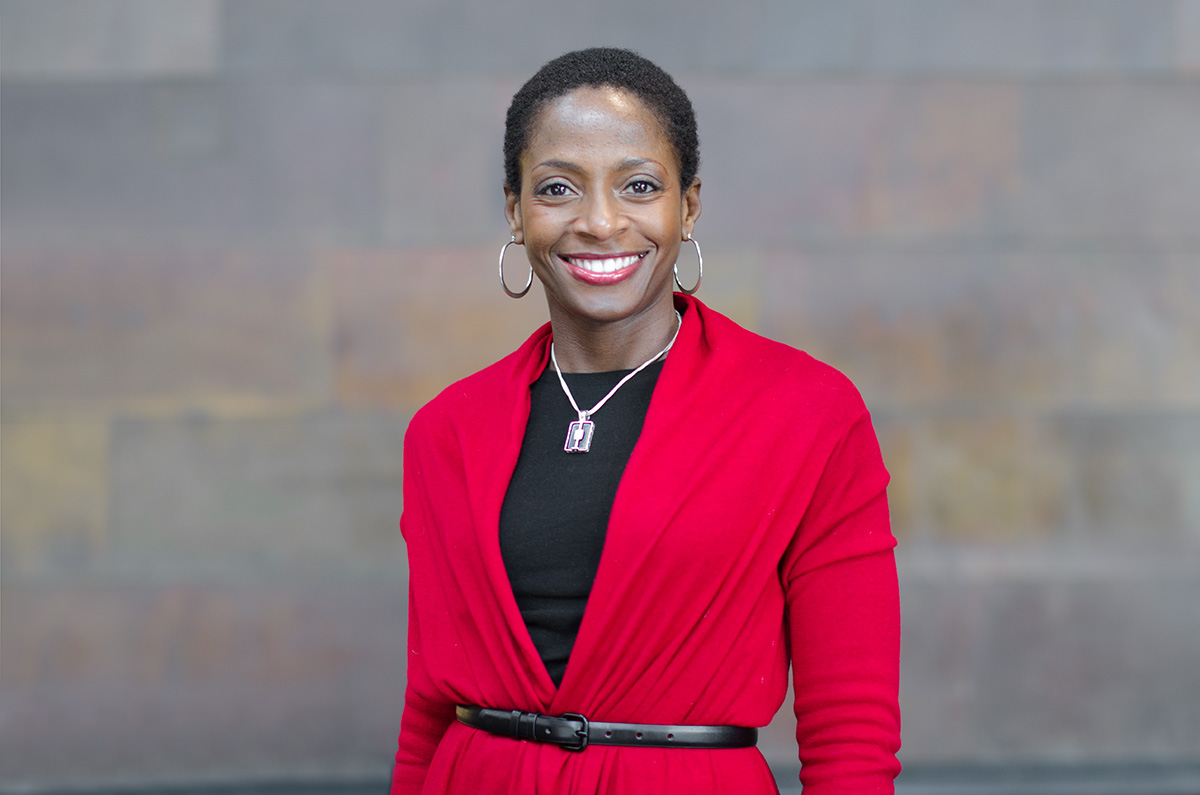Leading by example is extremely important to Daheia Barr-Anderson, assistant professor of kinesiology. She strives to be a role model through her research on physical activity and also as a mom.
“I really focus on physical activity because of my two little girls,” she says. “I don’t want them to be a statistic. Over 40 percent of African American girls are overweight and obese compared to their same-age, different-race peers.”
Barr-Anderson specializes in the behavioral aspects of physical activity. She focuses on African American girls with a special emphasis on the dynamics between mothers and daughters. Her research goes deeper to find the underlying individual and interpersonal barriers that contribute to obesity in adolescents and their families.
Originally from South Carolina, Barr-Anderson explains that there were different expectations and a certain “etiquette” when she was growing up in the South. In her family, kids were not to “move too much or be seen too much,” and one was expected to be a “young lady.”
“My girls are not like that—they’re free,” she laughs. “We move all of the time. Sometimes I’ll get comments from my mother or mother-in-law about them, and all I can really do is remind and reiterate that it’s really important to me that they move. I want them to move and be free.”
A great place to be
Before coming to the University of Minnesota, Barr-Anderson received her Ph.D. from the University of Maryland in kinesiology with an emphasis in exercise epidemiology; earlier she received a master of public health in epidemiology from the University of South Carolina. With an extensive background in physical activity research, Barr-Anderson wanted to broaden her professional horizons and study the role that healthy eating plays in total personal wellness.
After researching potential postdoctoral positions, she visited Minnesota. Here she met with Dianne Neumark-Sztainer and Mary Story in the Division of Epidemiology and Community Health, housed in the School of Public Health.
“It was 16 degrees when I came for a two-day visit,” Barr-Anderson remembers. “I was sitting in a grant meeting with Dianne, and around the table were professors, post-docs, master’s and Ph.D. students…there was this amazing dialogue going on.
“Dianne and Mary really respected everyone’s opinion, it didn’t matter who you were,” she continues. “They felt that everyone brought something to the table. This whole exchange of ideas, and the respect behind it, made me realize that this is where I want to be.”
Barr-Anderson and her husband had planned to move back to South Carolina after a six-year stint in the Washington, D.C. area, where she worked with the Centers for Disease Control and completed her doctorate. But after that meeting, she knew that Minnesota was where she needed to be. After living apart for almost two years, working in different states, her husband was able to find a job in Minnesota and they planted their roots.
“If someone had told me while I was growing up that I would live in Minnesota as an adult and love it, I wouldn’t have believed it,” she says with a smile.
With the Twin Cities’ vast opportunities to get outside and be physically active, Barr-Anderson felt connected and right at home.
“The environment, with walking trails, biking paths, and parks, is just astonishing,” she says. “I am blown away by the number of parks that are within a one-mile radius of my house. We have so many opportunities to move.”
Lessons in action
Barr-Anderson comes from a family of five kids, raised by a single mother. She notes that her mother worked in a factory and was a relatively quiet woman who woke up every morning and did what she had to do to provide for her family.
“We didn’t have a lot, but my mother worked hard to give us the little that she could,” she says. “Reflecting as an adult, I can see that, though she wasn’t very vocal about the lessons she was teaching us, they were all very present in her actions.”
Echoing the importance of social and community support in her research and intervention methods, Barr-Anderson places a priority on talking with her daughters about life and wellness.
“I try to be very vocal, lead by example, and really talk about a lot of things on a greater scale,” she explains. “I want my girls to know that the possibilities are endless and they can be whatever they want to be. I never want them to feel limited by race or gender, the status quo, or anything that could be considered a ‘barrier’.”
Barr-Anderson believes that people do what they think and know they can do. Without exposure to activity and ideas, people aren’t fully self-aware of their potential. That’s why exposure is so important in her research. Barr-Anderson advocates open conversation and creating dialogues in which everyone’s voice is heard.
“The self-efficacy aspect to creating successful interventions is so important,” says Barr-Anderson. “Having the confidence to feel that you can do it is what it’s all about, whether it’s eating healthy or moving.”
Read more about Daheia Barr-Anderson and the School of Kinesiology.
Story by Erin Kunesh | February 2015
